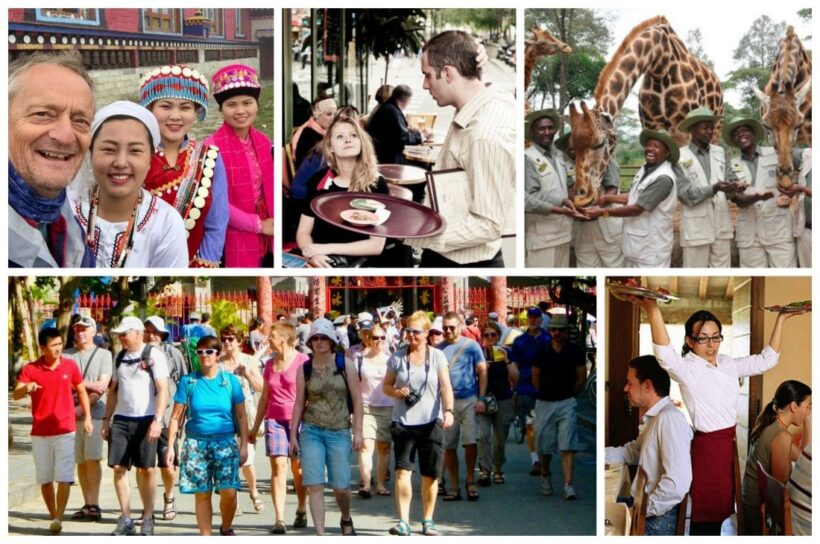Are people living in major tourism destinations happy?

Are people living and working in major tourism destinations happy and content, or miserable due to tourism? Or somewhere in between?
A new global survey of local residents’ happiness in World Heritage sites called Planet Happiness has been launched to address the issue. In an age of escalating overtourism, the initiative aims to show that measuring community wellbeing and happiness is, arguably, a more important metric than GDP, money, and perpetually growing visitor numbers.
The 15 minute online survey is available in 18 languages and is open for anyone to do. The survey measures key indicators, such as satisfaction with life, access to nature and arts, community engagement, standard of living, life-long learning, and health.
“The purpose of tourism in destinations such as Barcelona, Brasilia, Kakadu, Luang Prabang, Thailand, Yosemite, Mt Everest, Victoria Falls and other renowned places is to strengthen and support the happiness and wellbeing of local people,” says tourism consultant Dr Paul Rogers, co-founder of Planet Happiness.
“If tourism fails to do this, it is neither responsible nor sustainable, and local policies should change accordingly.”
Planet Happiness has been launched at a time when overtourism is becoming a major concern in visitor hotspots around the world, especially World Heritage sites. At the same time there is growing interest in happiness and wellbeing issues among individuals, communities, small and large businesses and nation states.
“It’s more about finding where there are deficiencies – such as having meaningful access to community fulfilment and feeling valued,” says Rogers. “The survey will show people where they are doing well compared to other tourism destinations, and possibly where they should seek to improve their lives.”
“It’s a new, fresh, more responsible and holistic way of looking at tourism.”
The Planet Happiness survey is a response to the fact that travel and tourism is one of the world’s largest and fastest growing industries, with over 1.33 billion visitor movements across borders in 2017. Today more than 1 in 10 people are employed in tourism globally.
“The more people who do the survey, the better,” says US-based Laura Musikanski, a lawyer, sustainability process expert and Executive Director of the Happiness Alliance at happycounts.org.
Musikanski says that aggregated local and global data from the Planet Happiness Survey Index will be open source and accessible to everyone with an interest in sustainable tourism and community wellbeing. The project will never share information that could personally identity any individuals.
The Planet Happiness project encourages all residents and workers in UNESCO World Heritage destinations to take the 15-minute online survey here. The Planet Happiness website will post and regularly update results and share them with journalists, students, businesses, government officials and interested parties around the world.
Planet Happiness would like to hear from destination managers, universities and any sponsors who would like to support the initiative and help deploy the Happiness Survey in World Heritage sites around the world.
Further information click HERE.

Tourism consultant Dr Paul Rogers, co-founder of Planet Happiness
ABOUT PLANET HAPPINESS
The goal of Planet Happiness is to help shape, support and inform the work of the Global Happiness Council. The project has two principal aims: to highlight and strengthen the relationship between tourism and the wellbeing of host communities and to raise global awareness and participation in the Gross National Happiness (GNH) and “Beyond GDP” agenda.
The project is a partnership between tourism and media experts with the Happiness Alliance. It will achieve its purpose by deploying what is arguably the best, most progressive and easy to use happiness survey on the planet. The survey will eventually be deployed in each of the 1,073 UNESCO listed World Heritage sites around the world.
Latest Thailand News
Follow The Thaiger on Google News:


























